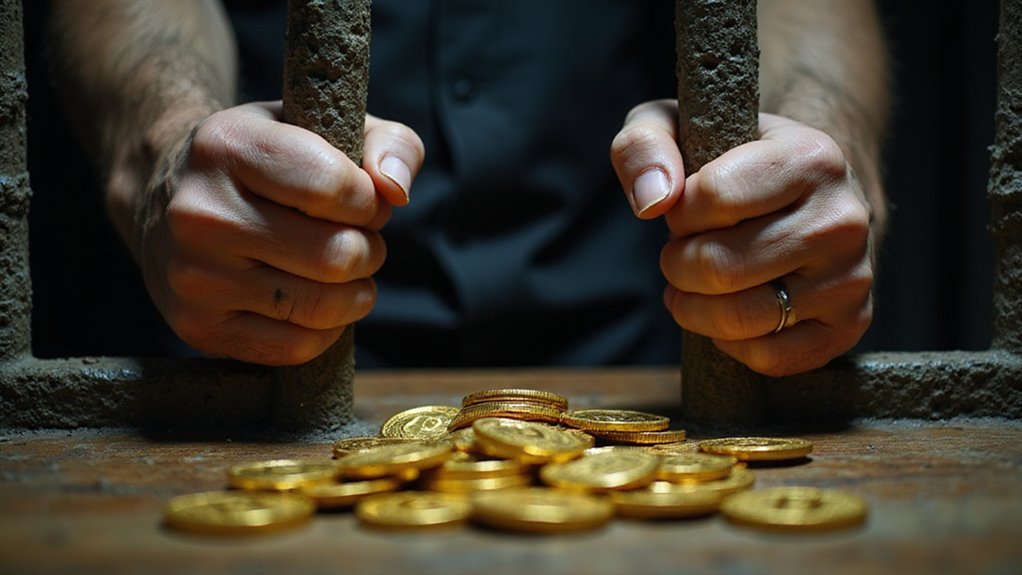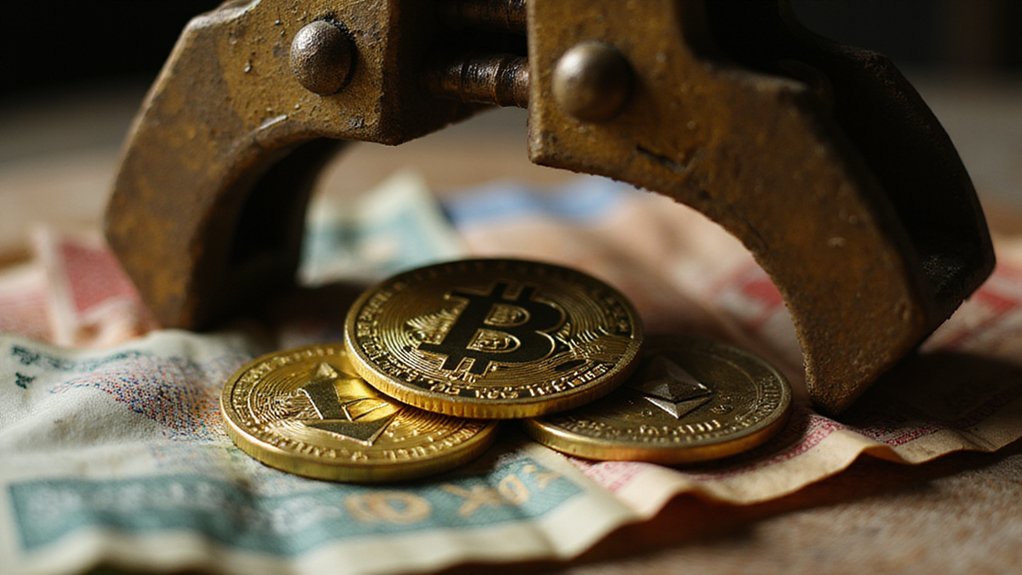While most nations grapple with how to regulate cryptocurrency without stifling innovation, Hungary has opted for a decidedly unambiguous approach: thorough criminalization of unauthorized trading backed by prison sentences that would make securities fraudsters blush.
Effective July 1, 2025, Hungary’s amended Criminal Code and new “Crypto Act” establish a mandatory compliance certificate system that transforms every cryptocurrency transaction into a bureaucratic exercise. The legislation creates “crypto-asset conversion validation service providers“—entities authorized by the Supervisory Authority of Regulated Activities (SARA) to issue certificates that determine whether crypto exchanges are legally valid. Without these certificates, trades become unauthorized and, fundamentally, criminal.
Hungary’s new crypto regime transforms digital currency trading from decentralized freedom into a criminal act without proper bureaucratic paperwork.
The penalties scale dramatically with trading volumes, suggesting lawmakers view crypto trading as inherently dangerous rather than merely under-regulated. Trading between 5-50 million forints (~$14,600-$146,000) carries up to two years imprisonment, while amounts exceeding 500 million forints can result in five-year sentences. Platform providers face even harsher consequences—up to eight years behind bars for facilitating unauthorized exchanges above the highest threshold.
These validation service providers must verify crypto-asset origins, wallet ownership, and conduct profile-based user assessments while cross-checking external databases. The process effectively eliminates anonymous transactions and peer-to-peer trading that originally defined cryptocurrency’s appeal. One might wonder whether this defeats the fundamental purpose of decentralized digital assets, but Hungarian legislators appear unconcerned with such philosophical considerations.
The framework aligns with the EU’s Markets in Crypto-Assets Regulation (MiCA), implemented since December 2024, though Hungary’s criminal sanctions exceed typical European approaches. A changeover “grandfathering” period allows pre-MiCA licensed providers to operate under national supervision until full compliance, overseen by the Central Bank of Hungary.
This centralization mechanism creates substantial restrictions on previously decentralized trading activities. Money transmission services are prohibited from servicing unauthorized crypto transactions, while all exchanges require validation certificates for legal validity. The legislation fundamentally transforms cryptocurrency from a decentralized alternative currency into a heavily regulated financial instrument subject to traditional banking oversight—an outcome that would likely perplex Bitcoin’s pseudonymous creator. Unlike traditional cryptocurrencies such as meme cryptocurrencies that rely heavily on community sentiment and social media momentum, Hungary’s regulated framework eliminates the speculative trading behaviors that typically drive these markets.
Despite the comprehensive regulatory framework, no Validators have been authorized by SARA as of now, leaving the practical implementation of these requirements in limbo. Critics warn that such rigid regulatory frameworks could drive capital flight from Hungary as investors seek more crypto-friendly jurisdictions.









